Have you every thought about why farmers need crop insurance? By now you have been asleep for two months if you haven't noticed most of us are suffering from lots of heat and very little rain. Great for the grass (I couldn't find my sarcasm font). Well, the news media has finally started picking up lots of stories about drying out corn fields. And we have all been warned about the raising food prices. And this drought forces us to look at just what we do to make sure our farmers don't lose everything they have when mother nature isn't so kind to their crops so they can roll the dice and try again next year.
Have you ever heard about the farm bill? Or have you heard of these payments farmers get either directly from the government for their crops and in the past even for not growing anything. Have you wondered why farmers have insurance for their businesses when other businesses don't get insurance from failure? I have the answer for you...
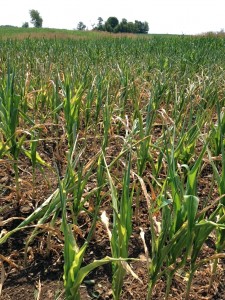 Rain makes corn. And no rain makes no corn. And this here is corn that is living in drought conditions on our farm. No corn for us.
Rain makes corn. And no rain makes no corn. And this here is corn that is living in drought conditions on our farm. No corn for us.
Farmers can't control the rain. Yet, they buy seed in hopes they will harvest a crop to pay for the seed. They buy planters and tractors and large harvesters called combines in hopes they will have a crop to pay for the machines. They take the ultimate gamble each year. They plant their seed. Fertilize it. Control it for pests in the form of weeds and bugs. And then they pray for rain. Sometimes answered prayers come in the form of rain and sometimes the answer is, learn some patience farmer.
Costs for Growing Corn
Well, let's talk about what it costs to grow corn. Let's start with the variable costs. Those things that you have to purchase every year in order to grow a crop. We have spent around $100 per acre on seed corn. Add on to that about $235 per acre in fertilizer and also pest control. We haven't even started calculating the cost of the fuel and gas to run the tractors, run the dryers for the corn if it still has a lot of moisture in it when we harvest it in the fall, or fixing anything that might break. That will run most farmers around $75 per acre. Oh, and then we have the cost of the crop insurance too. So tap on another $30 an acre.
But wait, we still haven't paid for the land, the tractors, equipment, or paid our self or employees we might have. Let's talk about the fixed costs of farming. Land...on average this will run you around $150 - $200 an acre whether you cash rent the land or buy it and make payments on it. Then you have to buy tractors, field equipment and combines to harvest the crops. Most farmers will keep their equipment for several years. The average cost per acre for equipment is going to run you another $85 per acre. Then you have to store the grain and dry it down. Those big silver grain bins will run you about another $15 per acre.
Oh then you want to make a little money too. Let's say farmers pay themselves and others a cumulative amount that runs about $60 an acre. Remember this is on average. Some farmers who farm more acres have lower cost per acre because they can spread the costs over more acres while others who farm fewer acres may have a higher per acre cost. Are you doing the math? We are knocking on around $750 per acre in costs.
We will be ok though. We have crop insurance. We have bought coverage for our farm in case we would have crop failure. We bought it at a guarantee of 80% of the yield we would have on an average year. What does that mean? Well if you read this stack of papers explaining our policy you get the details.
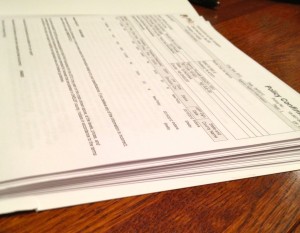
Let's say our average yield is 150 bushels of corn an acre. At 80% yield guarantee that means the insurance company will pay us for at least 120 bushels an acre. In the spring when we bought the insurance, we were guaranteed a price of around $5.70 a bushel. Sounds like a lot doesn't it? Well it is $684.
Think we can break even at best? Nope, we will exactly lose $66 an acre which is almost what we would pay ourselves. And if we didn't have crop insurance we would still have $700 per acre in bills. Wish you were a rich farmer yet?
I am not writing this for your pity. Farmers know the risk they take each spring. It is something each farmer has in their soul. Something that motivates them to break the earth open, plant a seed, grow food for either livestock or people, and then feed the world. Farming is not something anyone does for the money. The stress is too agonizing to do it for the money. Farmers do it for the people. Families all across Indiana, all across America do it to grow your food and feed their passion.
Farm Bill: Why farmers need crop insurance
So, in the midst of the worst drought farmers have seen since at least the 80's if not longer, we are writing a Farm Bill right now in DC. The tone in drafting this bill that is only 20% for farmers and 80% for food and nutrition programs for those who can't afford to buy food in our county, was that farmers have been sitting high on the hog. Record profits. Record yields.
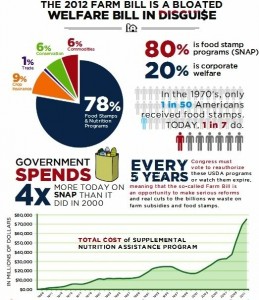
Legislators have been debating how to cut the farm bill without leaving the farmers out to dry if their crops dry up and aren't able to pay the bills
Farmers realize that as our Federal debt grows, they need to also do their part to reduce the debt through elimination of direct payments. Farmers realize on years they do make a profit, they don't need money from the government. That money should be used to reduce debt or at least offset other entitlement programs.
But, yet people feel farmers are not giving up enough government support. Some people feel that the fact that the federal government pays part of the premiums for crop insurance for farmers, that they are still receiving subsidies. People look at farmers as big ag conglomerates who should take on all the risk themselves. Maybe they should, but after a year like this it wouldn't take long for farmers to be like farmers in India or Kenya or Ethopia. The poorest and most hungry people in the country because of crop failure and absolutely no income to draw from to plant the next year's crop. So, then no crop is planted leaving productive lands barren.
Won't the Government Help?
By now you are surely thinking, well the government will surely give these drought stricken farmers some sort of disaster payment. Disaster payments that used to go to farmers when they suffered situations like this where no rain had fallen in over 6 weeks ended last year. Without the drafting and passing of a new farm bill, farmers are left fending for themselves in hopes that a crop insurance payment comes through that will allow them to pay their bills and plant another crop come spring.
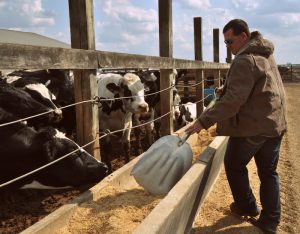
But, we have left a few things unspoken. The livestock. The pigs. The chickens. The cows. They all are dependent on the corn and soybeans grown throughout the midwest, the hay and alfalfa grown in the west, cotton seed grown in the south and sugar beets grown in the upper plains to eat. All of these crops have some how been impacted with this summer weather. You might be thinking, I only buy grass fed meat. Well, the grass is not available for the pasture animals this year either.
And then there is our national security issue that revolves around oil and has leaned on biofuels such as ethanol and biodiesel to offset imported oil. The biofuels also use the same crops the livestock eat. Somehow we all have to way all of these things and figure out how to make sure we have enough to go around.
Whether you know a farmer or not, the next meal you eat, remember to say a quick prayer of thanksgiving for the abundant food supply we have all benefited from and to be blessed with just what we need into the future.
- Smoking Brisket on the Big Green Egg: A Step-by-Step Guide to Smoked Brisket Recipe - January 2, 2025
- Mini Turkey Pot Pies that Rescue Your Thanksgiving Leftovers - December 8, 2024
- Traditional 7-Layer Salad Recipe with Peas and Hard-Boiled Eggs - November 18, 2024


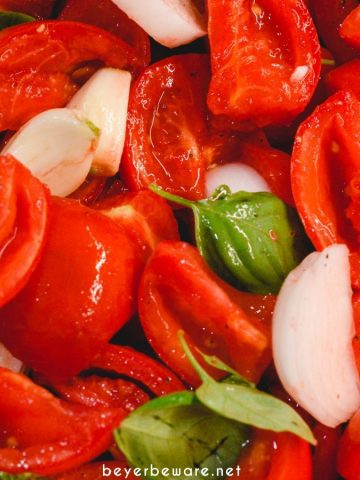
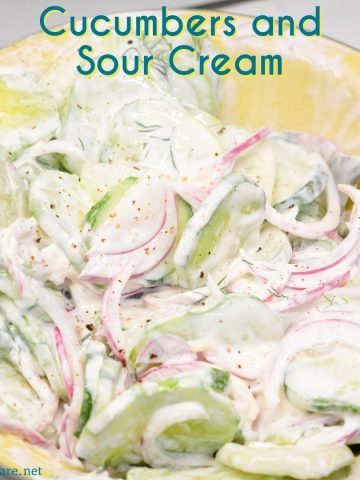
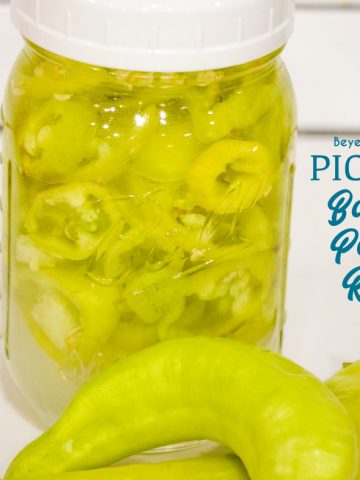
![How to make Cajun Compound Butter Take the softened butter and the seasonings and mix together in a [amazon_textlink asin='B00KHLN7K2' text='food processor' template='ProductLink' store='farmwifedrink-20' marketplace='US' link_id='579017ae-108d-4b77-aae9-835a5399da4c']or [amazon_textlink asin='B00939I7EK' text='blender' template='ProductLink' store='farmwifedrink-20' marketplace='US' link_id='bfac7f26-2034-4741-af6e-f16151f33717']. Pulsate the food processor several times. You may want to push the putter down to keep mixing it together. When it is completely mixed, scrape it out of the processor bowl and onto some plastic wrap. Shape the plastic wrap around the compound butter to the shape of a log. Stick the cajun compound butter in the fridge and let chill before making the steaks.](https://www.beyerbeware.net/wp-content/uploads/2019/12/Skillet-Steaks-Cajun-Compound-Butter-1-360x480.jpg)
Katie @Pinke Post
Leah, this was such heart felt yet very educational blog post. THANK YOU for the explanation and we also watch the radar nightly, daily and are dry. In ND, if a big soaking of rain would come we could make it out okay from this drought compared to the conditions you are suffering. But if the rain doesn't come it will be crop insurance that farmers took out on their land that determines whether they are farming next year or not. Thanks again friend for sharing.
Loy
Although we are not having the drought problems here in the Northwest that you are have, there is always something weather wise that affects farming. As the mother-in-law of a farmer I thank you for a enlightening and educational post.
Andrea Jularbal
Personally, i don't feel good about getting a crop insurance, can always make a way to avoid these things from happening. This is where they are good at. Even if it does not rain, they probably have a lake or something to get water from.. If farmers decide to buy a crop insurance, they it will just become another expense for them and it may cause them financial difficulties. I don't think if there are farmers would lay their back on crop insurance but who knows? they might give it a shot.
Jannika
Superbly iltaninulimg data here, thanks!
Julie Maurer
Leah - What a great explaination of crop insurance and the impacts of this drought. Thank you for sharing. Your fellow farmers in Wisconsin are sending prayers for rain, patience and perserverance. God Bless!
Linda
We are farmers too. No corn crop for us this year. Will be a huge financial blow, but we will get through it.
Linda
Thank you for a very informative post. The only thing I might add for those who are unaware is the number of acres a family farmer has. In our area, most family farms are 1000-1500 acres. So those input costs you mentioned multiply out to $750,000 to $1,125,000 PER YEAR for a farm. Without insurance to cushion the blow, a single year of crop failure would put us out of business and deeply in debt with no hope of recovery.
@Andrea-- The premiums that we pay for crop insurance are many thousands of dollars each year. My husband has considered taking the money he'd pay in premiums each year and setting it aside as self-insurance for disaster. The problem with that? Banks won't lend money to farmers unless they are insured against disaster. And since we don't have $100,000 or more just lying around (on the low end) to update necessary farm equipment, we need to work with the bank.
Even if we had a "lake or something" to get water from, we do not have irrigation equipment on our farm. It's not something that one can do on a whim--"oh, it hasn't rained in awhile, so now I'll start to water the crops manually." In many situations, it isn't feasible from a financial or logical perspective. In areas that get enough rain in the vast majority of years, it is impractical to take on the expense of irrigation.
Robyn
Leah,
You did a great job explaining crop insurance and the impacts of this drought. Growing up on a ranch I don't know a lot about farming. My Husband's family has always had small grains, but I have never asked exactly how the insurance and gov't payments work. Thanks for the insight.
We are dry here as well. We did get a good rain on Monday. The first since May. Our hay crop is half of what it was last year, at best. The pastures and dams are in bad shape. Not only are we lack of summer rain, we had almost no snow last winter. No snow, no moisture reserves.
Depending on how long and harsh the winter is we should have enough hay to keep the cow heard together. How long we keep the calves is the question.
Thank you for sharing. I hope you get some rain!
Michelle
Great post. We mostly have forage crops, so no insurance for us. However our inputs are spread over multiple years. You did an awesome job explaining the whole issue. This drought has been so trying!
Susan Meidinger
What a fantastic explaination to everyone throughout this country....but I would like to add that the type of people who choose to feed this world are proud, hard working, humble people who would much rather not depend on government involvement in their businesses.....if we could set a fair price for the products we produce there would be no need for government involvement in our businesses....but alas we have chosen a profession where we are at the mercy of others to dictate what prices we get for the product we produce......if we produce an overabundance the price is low....if we are unable to produce alot due to mother nature the prices skyrocket....but through it all, in order to produce, we have input costs that just keep going up by leaps and bounds ....and if we as farmers experience a disaster our input costs DON'T GO DOWN......the risk is extremely high and we go into this life knowing that.....yes, it takes a special person to take on this wonderful way of life because when we have success it is worth all we have gone through!!!
Greg Zick
Leah,
Awesome job on this article. Everything that it takes to make a crop happen was included and educational for those who are not aware. I am glad to hear your family is covered in this devistating year.
As always, a terrific job and the beast of luck to you and your family!
Brian
Well written post. I too and am farmer. We certainly need some reforms for government funding the in the new Farm Bill. Like you I like to point out that I don't want anyone's pity, I just want to let people know what is going on in the farming world. On our farm we just want to see our hard work come to fruition. It's tough, especially with early planting bringing extra high expectations, to see your crop decline in condition just a little bit more each day.
Lana
Great post Leah! I would be curious to know how much ground Don M. farms and if he has livestock. This drought, as your article states, not only hurts the farmed; it's harm will be wide-spread throughout our country. Farmers who cash rent are also more affected than land owners at times. Thanks, Leah for giving an accurate perspective of the far-reaching consequences of this drought that is NOT over. We haven't even truly touched on the bean crop yet!
Buy Tractors
I want to thank you for this great read!! I definitely enjoyed every little bit of it. I have you bookmarked to check out new stuff on your post… 🙂
money making ideas
Thanks , I've recently been looking for info about this subject for ages and yours is the greatest I've discovered till now.
However, what about the conclusion? Are you sure concerning the supply?
Randy Chorvack
It's interesting to know that 80% of the yield will be paid for with insurance. That's really good to know because I'm starting a farm but I'm not sure how well the crop will grow this year. I might've started a little too late.